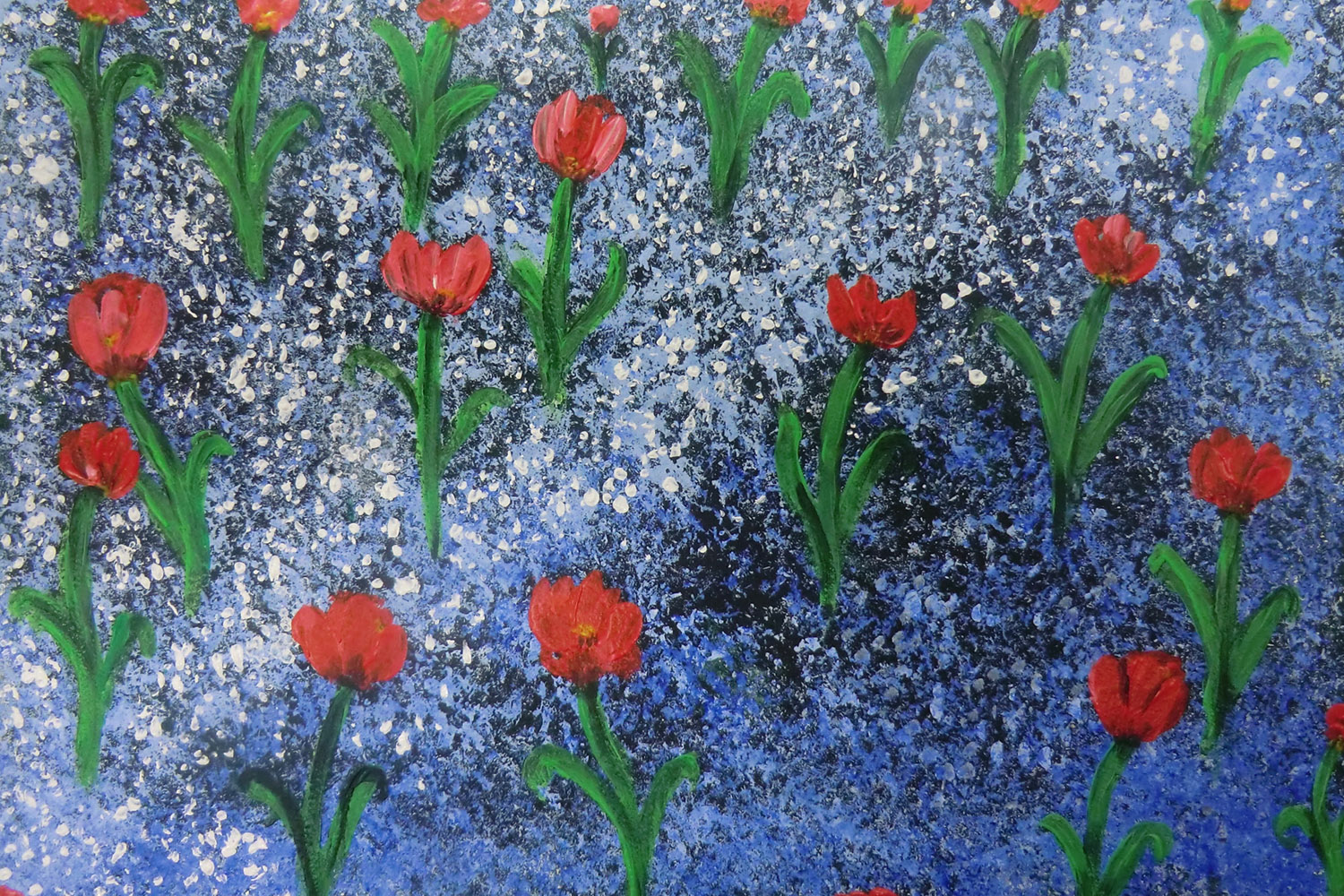Arts and Health relies on good partnerships between arts and healthcare professionals. In Unit 7 at Merlin Park University Hospital, our Dialysis Arts Programme thrives thanks to the enthusiasm and support of its nursing team. Staff Nurse Jacinta Reade has been involved from the start. She has offered gentle encouragement to those making their first marks, participated in staff art workshops, collaborated on artworks for exhibition, and contributed to our short documentary film, The Second Hand of the Clock. We asked Jacinta to share her thoughts on the arts programme.
I love my job. Because dialysis is very special. We get time in dialysis to talk to patients that no other nurse in any other discipline gets. Because it takes about a half hour to put a patient on and it takes about a half hour to take them off. Our patients are stuck to a machine for four hours, and for some it’s an hour and a half to get here, and an hour and a half to get home. So it’s a long day for them. It’s a most difficult time.
Dialysis, while it does a good thing it also has a very hard effect on the body. It affects the bones, it affects everything, not to mention your sanity. So to have an arts programme where a patient loses themselves in their artwork – even if it’s only for 10 or 15 minutes – I think that must be wonderful for the patients. I know the time disappears when I do something artistic. I saw it happen when I went to a staff art class and I was there for ten minutes and four hours had passed. And I think that must be wonderful for the patients.
That they can actually forget that they’re on dialysis and that they can have a normal conversation with somebody that’s not about their phosphates, or their potassium, or their calcium. No – it’s about burnt umber, and it’s about crimson red. It’s about things that have nothing to do with their illness and how amazing is that?
When I came in here the whole unit was hospital beige. Hospital beige and brown, that’s all there was here and 4 televisions that patients couldn’t watch. So things have changed a lot in the last few years – not least the arts programme. When it started I thought this is amazing. I thought I hope this is not just going to be some flash in the pan and that she’s going to come here and then the funding is going to run out. So I was kind of filled with trepidation for the first couple of years because really it was a luxury in the first months but from then on it was an actual necessity. Now it’s part of the fabric of the place. I think the place would be beige and brown if it wasn’t here – instead of full colour.
The patients are proud of what’s up on the walls. I walk into the waiting room and walk down the hall and I remember people every day. These are patients that are gone a long time, but I remember their names. I remember them all because I can see what they left behind, and their families must be over the moon that they have these special mementos of these special times.
It’s actually one of the first things I mention when new people come to the place. You try and tell them the positive things like that. It’s not going to bear any resemblance to their life before dialysis, but I do think everybody benefits. We all benefit from the arts programme. Everybody loves to see a different focus.
So I’m really glad you’re not a flash in the pan. It’s not possible to not have an arts programme here. That just can’t happen.

Poppies by Jacinta Reade made during a staff art workshop, as part of an HSE staff health & wellbeing initiative.

